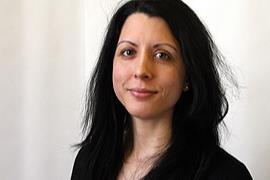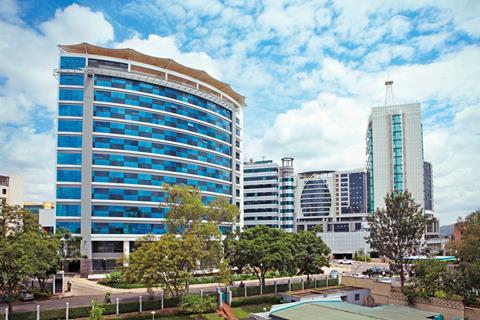Senior judges may disagree over whether Rwanda is a safe place for the government to send the huddled masses who arrive on UK shores seeking asylum. The Supreme Court is due to hear home secretary Suella Braverman’s appeal against the Court of Appeal’s ruling that it is not.

But the Bar Council, the body that represents the 17,500 barristers in England and Wales, will have no qualms about visiting the East African country in October this year. Bar Council chair Nick Vineall KC and a team of officials will be going to the capital Kigali for a round of ‘high-level meetings’ with local senior legal figures.
Vineall told the Gazette that the details of the visit are not finalised and registration for those attending has yet to open. However, he suggested that the programme is likely to cover issues such as pro bono, financial services, money laundering, professional secrecy, medical law, cyber security, ethics and the rule of law.
Bar Council representatives hope to meet lawyers, legal firms, and officials including the attorney general and chief justice, as well as organise training sessions and workshops in partnership with the Rwandan Bar Association.
Vineall insists that the UK government had no role in shaping the trip and that it has no connection with the issues in the Rwanda litigation in the courts here.
The Bar Council’s programme of international activities and overseas visits, he says, is designed in conjunction with its international committee. The choice of jurisdiction is ‘intended to help build stronger ties with colleagues and increase the work opportunities for barristers in England and Wales’.
Part of the justification for choosing Rwanda – which 30 years ago was in the grip of civil war and genocide – says Vineall, is the recent growth in Kigali arbitration and Rwanda’s adoption of a common law system.
In a blow to the government’s flagship policy, in the majority decision in the Court of Appeal, master of the rolls Sir Geoffrey Vos and the vice-president of the court’s Civil Division Lord Justice Underhill ruled that it is unlawful to send asylum seekers to Rwanda.

They said that because of deficiencies in the Rwandan asylum system there are substantial grounds for believing that there is a real risk that people sent there will be returned to their home countries, where they face persecution or other inhumane treatment, when in fact they had a good claim for asylum.
The court concluded that Rwanda was not a ‘safe third country’ even though assurances provided by its government were made in good faith, and that sending anyone to the country would constitute a breach of Article 3 of the European Convention on Human Rights – which prohibits torture, and inhuman or degrading treatment or punishment.
In agreement with the High Court, the lord chief justice, Lord Burnett of Maldon, reached the opposite conclusion and said that the procedures put in place by the Rwanda agreement and its assurances were sufficient to ensure that there was no real risk that asylum-seekers relocated under the Rwanda policy will be wrongly returned to countries where they face persecution or other inhumane treatment.
More widely, Human Rights Watch reports that Rwanda is a country in which ‘political opposition, civil society, and media remained closed’, where arbitrary detention, ill-treatment and torture are ‘commonplace’, and fair trial standards were routinely flouted in cases deemed sensitive.
The Bar Council’s trip raises questions about the appropriateness of the destination as well as its timing. Some barristers to whom the Gazette has spoken, including a couple specialising in asylum and immigration law, do not have a problem with the visit.
But critics argue that it appears to add legitimacy to a political regime that does not tolerate dissent or adhere sufficiently strongly to the rule of law at a time when the UK government is seeking to persuade the courts to the contrary. They accuse the Bar Council of prostituting the rule of law for a few photo opportunities.
Any suggestion that it is simply an excuse for a foreign junket paid for by the profession is unfair – despite the recent curtailment of the Bar Council’s foreign travel due to Covid, Kigali is hardly a popular holiday destination.
But the body does have a history of engagement with undemocratic and questionable regimes. Over recent years, its leaders and officials have visited China, Russia, Kazakhstan and the United Arab Emirates.
It does so, according to past annual reports, in furtherance of its aims to promote the work of the bar in the interests of the bar, the wider economy and society at large, and to secure a role as a key player in the maintenance of the rule of law. The Law Society also engages in similar overseas missions.
Of course, both groups do speak out against regimes that threaten lawyers and judges, and put the rule of law at risk. But isn’t it really all about the money? That may be no bad thing, but there are those who believe it should be for individual chambers and law firms to drum up work from overseas.
Catherine Baksi is a freelance journalist and qualified barrister































No comments yet